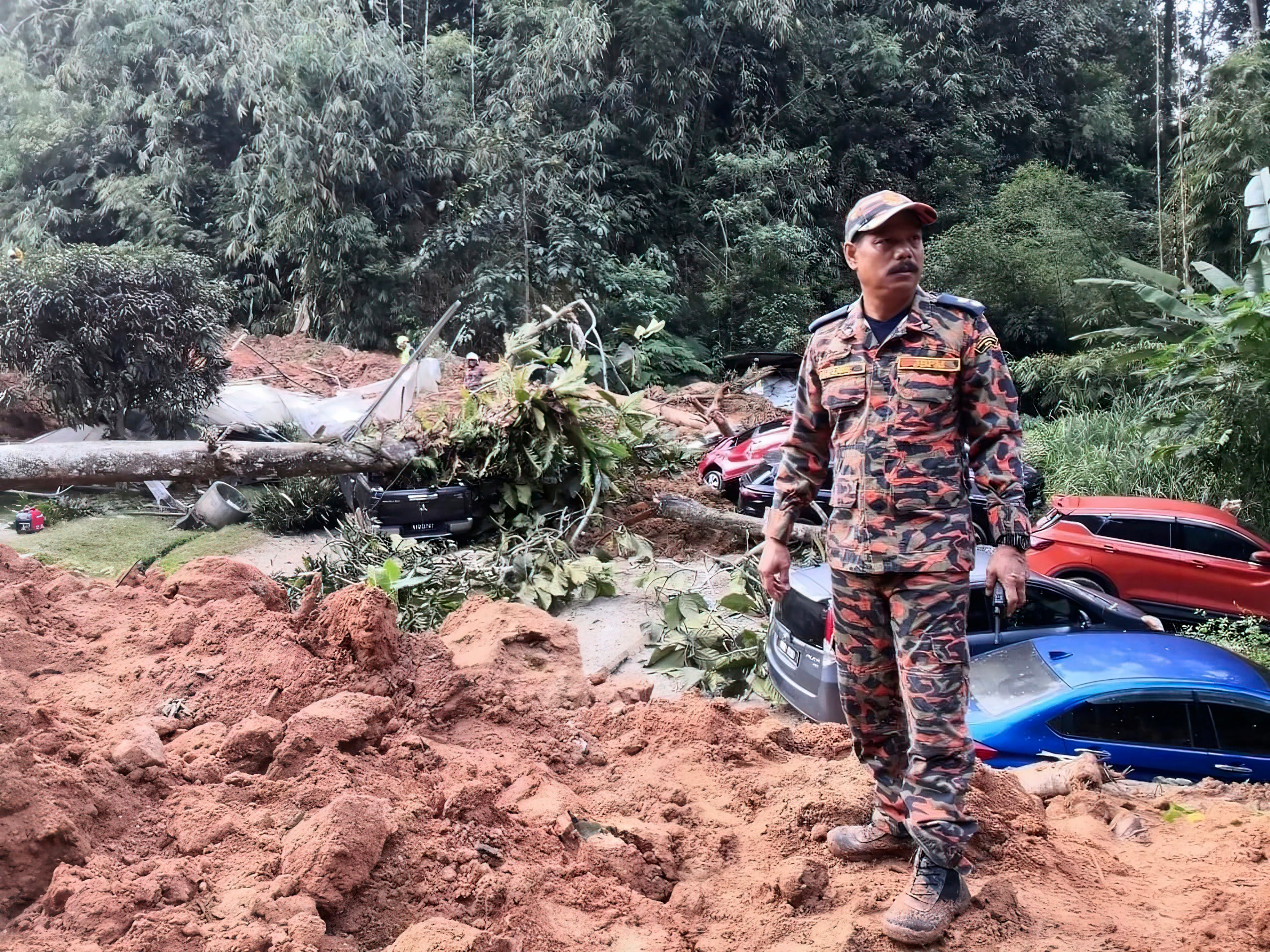Malaysia says landslide that killed 31 people last year was caused by heavy rain, not human activity
A Malaysian government investigation has concluded the landslide that killed 31 people at an unlicensed campground last year was caused by persistent heavy rainfall, not human activity

Your support helps us to tell the story
From reproductive rights to climate change to Big Tech, The Independent is on the ground when the story is developing. Whether it's investigating the financials of Elon Musk's pro-Trump PAC or producing our latest documentary, 'The A Word', which shines a light on the American women fighting for reproductive rights, we know how important it is to parse out the facts from the messaging.
At such a critical moment in US history, we need reporters on the ground. Your donation allows us to keep sending journalists to speak to both sides of the story.
The Independent is trusted by Americans across the entire political spectrum. And unlike many other quality news outlets, we choose not to lock Americans out of our reporting and analysis with paywalls. We believe quality journalism should be available to everyone, paid for by those who can afford it.
Your support makes all the difference.A landslide that killed 31 people at an unlicensed campground last year was caused by persistent heavy rainfall, not human activity, a Malaysian government investigation concluded.
Ninety-two people were sleeping at a campsite on an organic farm when soil and debris crashed down from a road about 30 meters (100 feet) above and covered about 1 hectare (3 acres) of the site in Batang Kali in central Selangor state.
Most of the campers were families enjoying a year-end vacation, and 11 of the 31 dead were children. Rescuers found the bodies of a mother and her toddler daughter locked in an embrace, and a man buried under the landslide was uncovered still clutching his dog.
Rain had fallen for five straight days before the Dec. 16 landslide, amounting to 118.6 millimeters (4.67 inches), Deputy Prime Minister Ahmad Zahid Hamidi said in a statement late Monday. The cumulative rainfall for the preceding 30 days was 444.8 millimeters (17.5 inches), he said.
“This heavy rain caused slope failures, which buried the camp sites... under soil, causing damage to property and loss of life,” he said. “The investigation found no strong evidence of anthropogenic activity as a contributing factor to this landslide.”
Anthropogenic refers to environmental change due to human activity.
Zahid said the forensic report was declassified earlier this month. He didn't say why but local media said families of the victims had requested the government to make the report public.